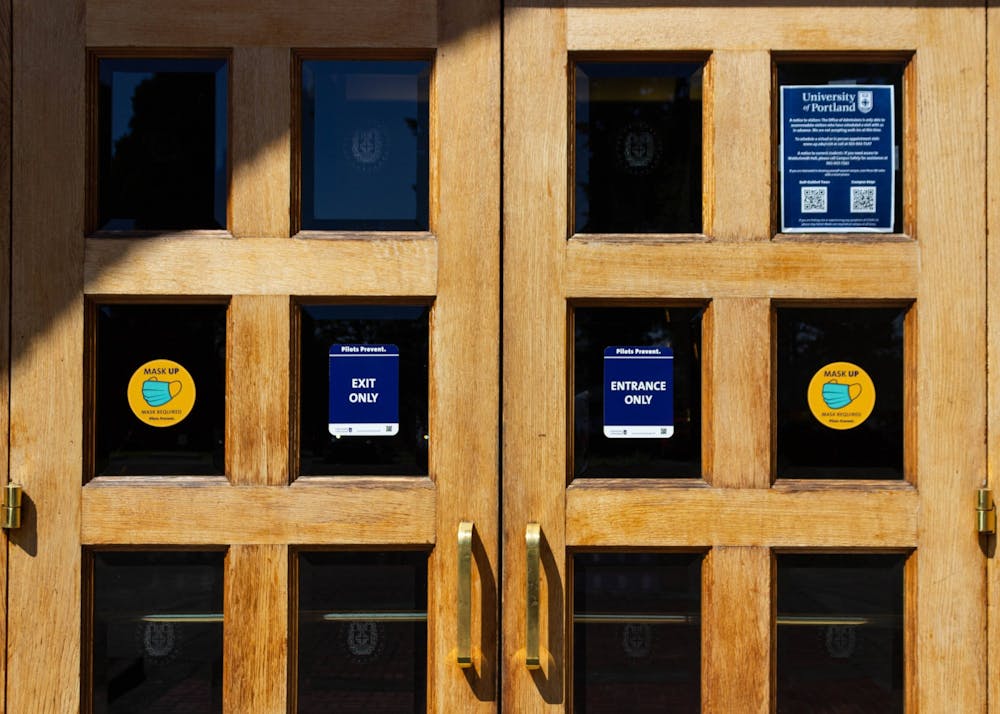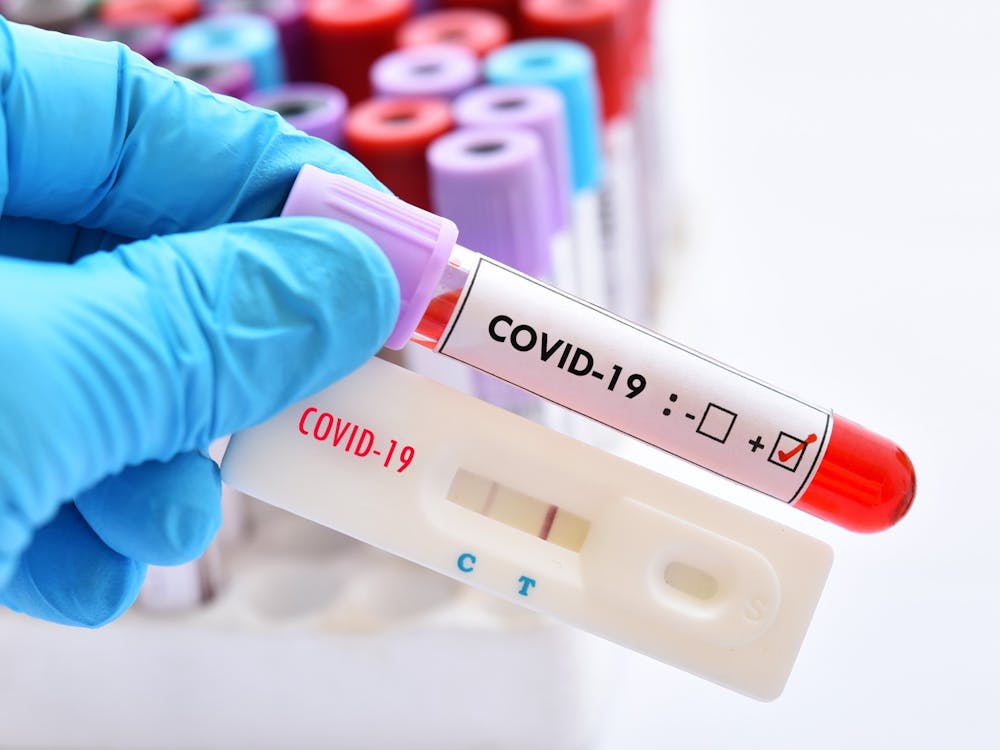University of Portland President Fr. Mark Poorman announced today in an email to students, staff, faculty and families that UP is planning for a partial reopening of campus for spring semester 2021. The majority of classes will still be held online, although the option to have in-person classes for first-year students is under consideration. The start of the semester will be delayed until Monday, Jan. 25.
Freshman students will have priority to live in the residence halls, along with students already living on campus. The University will be de-densifying the residence halls, and implementing new COVID-19 testing protocols. First-year students will not be required to live on campus.
“We believe that the first-year students should be given first opportunity to reside in residence halls and receive foundational community experience enjoyed by students before them,” Poorman said in his email to the UP community.
All students living on campus will be tested for COVID-19 at the beginning of the semester using the polymerase chain reaction (PCR) test. Students will have to limit their activity while waiting the 48 hours for their test results. Students who test positive will be required to isolate in a designated isolation residence hall.
“Students in isolation will live in apartment-style accommodations with necessary amenities and close support from our COVID-19 case management team,” the email said.
Additionally, sample groups of students living on-campus will take rapid COVID-19 tests each week throughout the semester, with results available in around 15 minutes. Students who are selected for testing will be required to do so.
UP will also be testing residence hall wastewater, a tactic used by other universities around the country, for signs of COVID-19 in the dorms. This will be done by a third-party vendor for effluent water sampling, and supervised by UP’s Environmental Health and Safety staff, according to Vice President for Marketing and Communications Michael Lewellen.
Symptomatic testing COVID-19 testing will be done as needed for all students, including those living off-campus. The PCR test will be used instead of the rapid test for students who are showing symptoms, who test positive in one of the sample groups taking rapid tests and students exposed to people with COVID-19.
UP is developing a dashboard for COVID-19 test results, something that most universities with students on campus have adopted already. This will go live in January according to the email.
Flu vaccinations are strongly recommended for students returning to campus, and all social distancing and mask protocols will remain in effect.
Spring semester will have a delayed start to allow students to undergo COVID-19 testing and receive their final test results. This moves the beginning of the semester to Jan. 25, and will result in a change to the traditional Spring Break. It will be replaced with “two 2-day, mid-week pauses”. More details on the changes to the academic calendar will be released by Oct. 19, according to Poorman’s email.
If conditions are determined too unsafe for on-campus residency, the University “will be ready to pivot to a different mode of operations,” the email said.
This update comes in light of critical development in coronavirus news, with President Trump and the first lady both testing positive for COVID-19. University of Notre Dame President Fr. John Jenkins, who has been under scrutiny for not wearing a mask, has also tested positive for COVID-19.
Austin De Dios is the News and Managing Editor of The Beacon. He can be reached at dedios22@up.edu.








